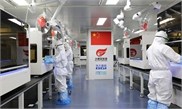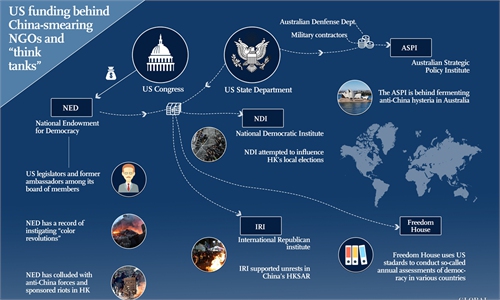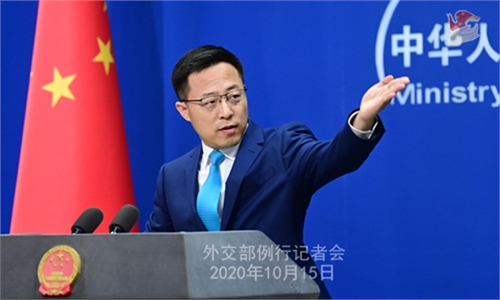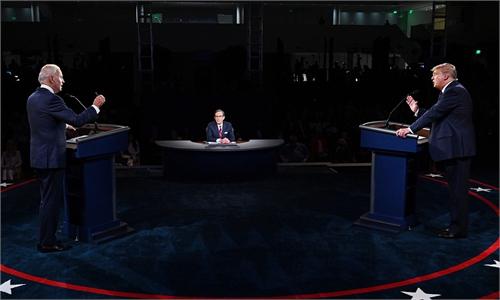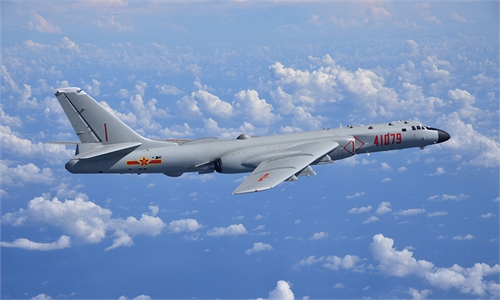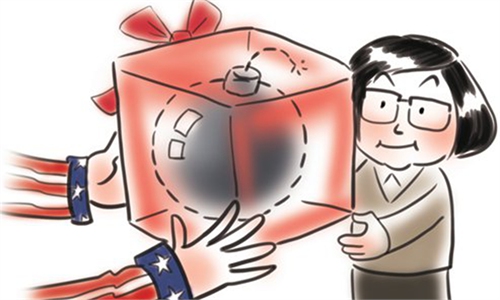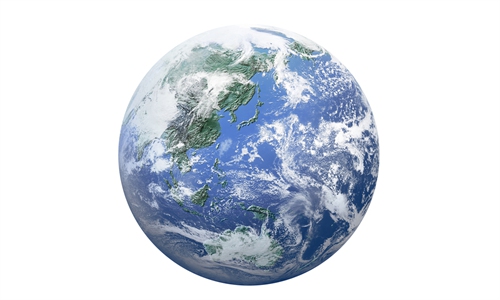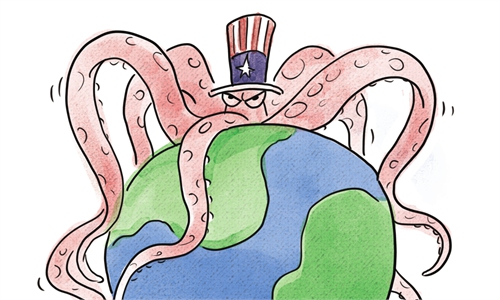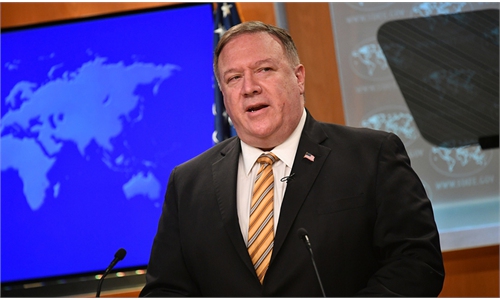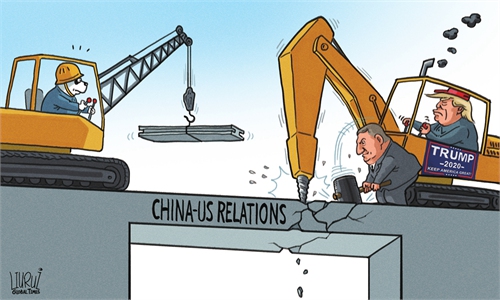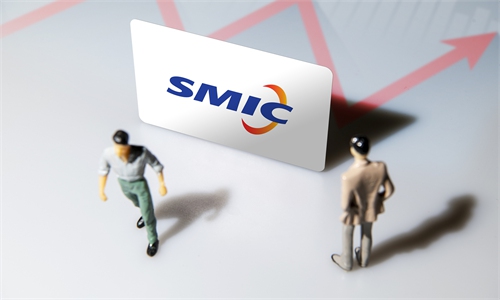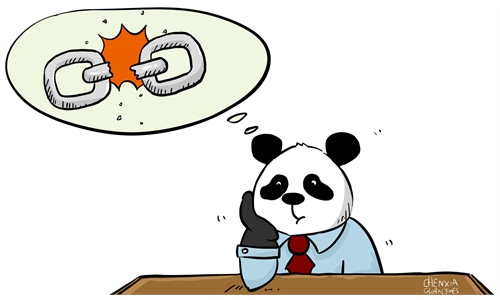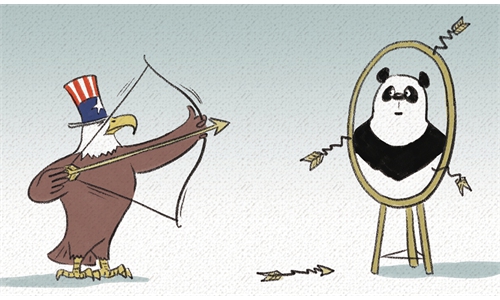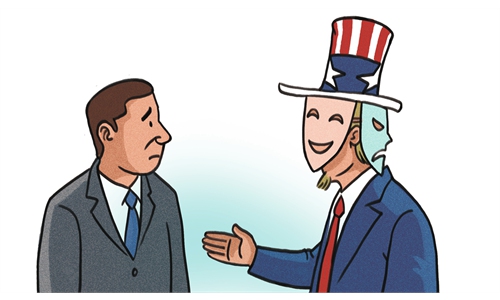China's BGI says it has no access to patients' samples after US issues privacy concerns
Chinese genomics firm BGI Group said it has no access to either patient samples or data after the US reportedly warned of patient privacy concerns regarding coronavirus test kits it made.
Chinese politicians and experts call on the US to look in the mirror to reflect on how its funding has tainted think tanks
While US Secretary of State Mike Pompeo calls for vigilance over think tanks he believes are "tainted by the machinations" of foreign governments, he turns blind eye to the fact that the US is the world's worst when it comes to interfering in other countries' internal affairs by funding think tanks to do its bidding, experts said.
FM denounces Pompeo's pompous populism featuring never-ending vilification of China
China's Foreign Ministry on Thursday denounced US Secretary of State Mike Pompeo's groundless accusations of human rights volitions during his visit to the International Republican Institute (IRI) where he called on US' European allies and the US-funded IRI to unify against China.
First Trump-Biden debate epitome of US chaos, sharp social division
"This debate was like the country: Everybody's talking. Nobody's listening. Nothing is learned. It's a mess."
Lessons from Toshiba, Alstom: how US suppresses foreign rival companies to maintain tech hegemony
People in the know are no longer surprised by the aggressive treatment of foreign tech companies by the US. In past decades, companies around the world such as Japan's Toshiba and France's Alstom were targeted, sanctioned and seriously hurt by the US government that used excuses like security, anti-dumping and anti-bribery.
China can powerfully counter US threats in first, second island chains
Although China's overall naval and air forces strength still haves a gap with that those of the US, if Washington poses a direct threat to China's national defense security and strategic security from the military bases in the second island chain, China is fully capable of making them pay corresponding prices. In this sense, China may need to further strengthen its strategic power projection capabilities and combined naval and air force combat capabilities.
US arms sales won't alter power imbalance between mainland and Taiwan
Whatever arms Taiwan buys, it will not be able to change the power imbalance between the mainland and Taiwan. The fact is that Taiwan's military capabilities are nowhere close to what the PLA can do.
Tech agreement shows China-US entanglement no longer easy
In my opinion, in the next decade or more, the frictions between China and the US will be normalized. The game is most likely to be an entanglement rather than a one-sided battle or a violent confrontation.
The term 'new Non-Aligned Movement' is too simplistic in multilateral world
Under the momentum of great changes, we need to have a more detailed analysis of new problems emerging in international politics – rather than simply making up misleading narratives.
Illusion for the US to use WTO to contain China
Washington must understand that the WTO will not become a handy tool, nor a puppet for it to contain China and achieve its hegemonic goal.
US again pays lip service, this time to Mekong countries
But US assistance, which often comes under the banner of democracy and the rule of law, which don't work well even within the US, will prove to be just lip service for these countries.
Expanding China-US market interdependence remains important
China-US tensions are rising due to Washington's continuous escalation of its containment of the world's second largest economy. Since some US politicians have been recklessly banging the drum of the "decoupling" theory, voices in China have emerged arguing that it might be a better choice for China to decouple from the American economy as well to shun the US government' bigotry and coercion.
Is it wise for US to ban Confucius Institutes?
The loss of these intellectual fountains of Chinese thought in the US is invisible but tangible. It not only damages the image of US universities but it also weakens the teaching strength of the US education system.
Possible SMIC ban another US war against China's tech rise
The US government is apparently seeking to further escalate its tech war against China by reportedly considering adding China's leading chipmaker to a trade blacklist, threatening to further disrupt a massive $300 billion-worth annual chip trade between China and other countries, including the US, whose companies sold about $70 billion worth of chips to China in 2019 alone.
Beijing ponders measures to offset US 'decoupling' attempt
With China's per-capita GDP rising to $10,400 in 2019 and the US government doing its utmost to harass and contain China's progress, Beijing is to reorient its economic policies by developing its domestic market, while enhancing trade and economic partnership with friendly countries and regions.
China's vaccine R&D is not in a nasty US rat race
US views COVID-19 vaccine R&D a cutthroat competition for power and prestige. It looks like a once handsome guy heading toward a nostalgic and sentimental midlife, who is deeply concerned about losing its attractiveness.
US Indo-Pacific plan self-defeating as China upholds multilateralism
While the strategic construct of the Indo-Pacific region is showing an adverse trend toward China, people in the region should take this with a pinch of salt. China has enough capability to safeguard its own military and national security.
US hypocritical 'goodwill' to Western Hemisphere can backfire
Latin America is a backyard to no one. The US needs to truly show goodwill by treating the region equally, otherwise all kinds of "initiatives," "ideas" and "strategic frameworks" that the US proposes will only be self-defeating. This will push Latin America farther away.
